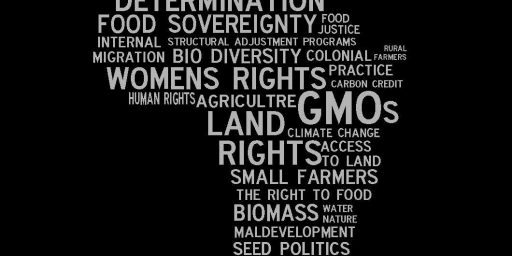Woodward Was Told of Plame More Than Two Years Ago
The big news of the day is Bob Woodward’s claim that he was told by a White House official about Valerie Plame’s CIA status in June 2003, well before the current controversy broke out.
Woodward Was Told of Plame More Than Two Years Ago (WaPo, A1)
Washington Post Assistant Managing Editor Bob Woodward testified under oath Monday in the CIA leak case that a senior administration official told him about CIA operative Valerie Plame and her position at the agency nearly a month before her identity was disclosed. In a more than two-hour deposition, Woodward told Special Counsel Patrick J. Fitzgerald that the official casually told him in mid-June 2003 that Plame worked as a CIA analyst on weapons of mass destruction, and that he did not believe the information to be classified or sensitive, according to a statement Woodward released yesterday.
Fitzgerald interviewed Woodward about the previously undisclosed conversation after the official alerted the prosecutor to it on Nov. 3 — one week after Vice President Cheney’s chief of staff, I. Lewis “Scooter” Libby, was indicted in the investigation.
Citing a confidentiality agreement in which the source freed Woodward to testify but would not allow him to discuss their conversations publicly, Woodward and Post editors refused to disclose the official’s name or provide crucial details about the testimony. Woodward did not share the information with Washington Post Executive Editor Leonard Downie Jr. until last month, and the only Post reporter whom Woodward said he remembers telling in the summer of 2003 does not recall the conversation taking place.
Woodward said he also testified that he met with Libby on June 27, 2003, and discussed Iraq policy as part of his research for a book on President Bush’s march to war. He said he does not believe Libby said anything about Plame. He also told Fitzgerald that it is possible he asked Libby about Plame or her husband, former ambassador Joseph C. Wilson IV. He based that testimony on an 18-page list of questions he planned to ask Libby in an interview that included the phrases “yellowcake” and “Joe Wilson’s wife.” Woodward said in his statement, however, that “I had no recollection” of mentioning the pair to Libby. He also said that his original government source did not mention Plame by name, referring to her only as “Wilson’s wife.”
Woodward’s testimony appears to change key elements in the chronology Fitzgerald laid out in his investigation and announced when indicting Libby three weeks ago. It would make the unnamed official — not Libby — the first government employee to disclose Plame’s CIA employment to a reporter. It would also make Woodward, who has been publicly critical of the investigation, the first reporter known to have learned about Plame from a government source.
As is often the case with Woodward’s claims, though, there is some doubt about their veracity:
Downie said he could not explain why Woodward said he provided a tip about Wilson’s wife to Walter Pincus, a Post reporter writing about the subject, but did not pursue the matter when the CIA leak investigation began. He said Woodward has often worked under ground rules while doing research for his books that prevent him from naming sources or even using the information they provide until much later.
Woodward’s statement said he testified: “I told Walter Pincus, a reporter at The Post, without naming my source, that I understood Wilson’s wife worked at the CIA as a WMD analyst.”
Pincus said he does not recall Woodward telling him that. In an interview, Pincus said he cannot imagine he would have forgotten such a conversation around the same time he was writing about Wilson. “Are you kidding?” Pincus said. “I certainly would have remembered that.”
Steve Clemons believes Woodward has crossed some serious ethical lines:
Woodward’s celebrity-status has seriously blinded him and affected his judgment about quality journalism and his responsibilities to the public. He should never have been making such comments on television about the Plame case if he was, in fact, involved. He should have RECUSED himself in such discussion. Now, his revelations must become central to the Plame story — and they threaten significantly the direction that Fitzgerald takes in the investigation.
Tom Maguire thinks this revelation will make Fitzgerald’s case much harder, insomuch as it seems to establish that Libby was not the first to reveal Plame’s status to a reporter. Wizbang’s Paul agrees, adding, “This has to be an embarrassment for Fitzgerald. It really makes him look like a bumbling Inspector Clouseau.”
Since Libby is technically charged with crimes related to lying under oath, though, it’s not clear why that will matter. Maguire may be right, though, that the jury will consider the surrounding circumstances in making its judgment. Betsy Newmark has an interesting, if somewhat implausible, answer:
So, if Woodward and Pincus both testify to different memories of their conversations, how is that different from Libby and Russert both testifying to different memories of their conversations? If we can believe that the great Bob Woodward is misremembering when he told someone something, isn’t it possible that Tim Russert could misremember something, too? Or that Scooter Libby could? Why is one discrepancy worthy of indictment and the other one chalked up to “confusion about the timing”?
If the only evidence that Fitzgerald has of Libby’s crimes is inconsistency with Tim Russert’s testimony, he should be disbarred. That seems highly unlikely to be the case, however. Indeed, it seems the chief evidence is that Libby’s answers don’t jibe with his own answers over time.
Mark Coffey speculates as to who Woodward’s sources is here: “Just a random thought here: who gave Woodward the most access? Colin Powell’s State Department…second most: Rumsfeld’s team at Defense…”
Meanwhile, I once again find myself in agreement with Kevin Drum:
This is just bizarre. […] I can’t begin to make sense of this. The only thing that’s clear is that Mr. X must have had some reason to suddenly come clean, and that reason must have had something to do with Fitzgerald’s ongoing investigation. Perhaps Mr. X is a cooperating witness, or perhaps he’s someone who started to feel some heat and decided to come forward because he got scared. Who knows?
Assuming Woodward’s account is accurate–and that’s not an automatic assumption–I can’t quite figure out why it much matters. It seems irrelevant to the Libby case aside from perhaps slightly bolstering the “everyone knew Valerie Plame worked for the CIA” meme.
Ed Morrissey–who’s much more excited about this, calling it “a stunning new development”– seems to think that’s the outcome:
So much for the covert status of Valerie Plame. Even the CIA didn’t think she worked under cover — a rather obvious conclusion, given that she went to work rather openly at the Langley facility. Someone will need to remind me why we’ve spent two years on this investigation, because at the moment it looks like a gigantic waste of time and money.
In an update, he adds:
The other point, which I missed in my first presentation of the story, is that Woodward doesn’t believe that the leak was malicious at all. According to Woodward, the administration didn’t even think Plame was covert at all — which eliminates the mens rea needed for the crime Fitzgerald’s investigation meant to uncover.
We’re in agreement. That’s been my take on the affair from the very early days.
Update (2152): Scooter Libby’s attorney, and apparently the AP, seem to be on the “this helps Scooter” bandwagon.
Woodward Claim on CIA Leak Disputes Charge
Bob Woodward’s version of when and where he learned the identity of a CIA operative contradicts a special prosecutor’s contention that Vice President Dick Cheney’s top aide was the first to make the disclosure to reporters.
Attorneys for the aide, I. Lewis “Scooter” Libby, described Wednesday’s statement by the Washington Post’s assistant managing editor as helpful for their defense, although Libby is charged with lying to a grand jury and the FBI, not with disclosing the CIA official’s name. “Hopefully, as information is obtained from reporters like Bob Woodward, the real facts will come out,” lawyer Ted Wells said Wednesday.
[…]
Special prosecutor Patrick Fitzgerald, in announcing the charges, portrayed Libby as the first high-level government official to reveal Plame’s identity to reporters in summer 2003. Legal experts said Wednesday the disclosure that Woodward had a source — who was not Libby — could be used by Libby’s lawyers to bolster their claim that Plame’s identity was common knowledge among government officials and reporters. “Much was made of the fact that Libby set all of this in motion, that he was the first government official to reveal this,” said former Deputy Attorney General Eric H. Holder Jr., now a defense attorney in Washington. “As a defense attorney, I’d try to make as much of this as I possibly could to call into question the completeness of the investigation and raise concerns about a rush to judgment.” However, he said, “I’m not sure at the end of the day that it hurts the trial of this case.”
Robert W. Ray, a former independent counsel, said the Woodward disclosure won’t help Libby if his defense is that he wasn’t the only official leaking Plame’s identity. “The point was: Did you make false statements and perjure yourself?” Ray said.
In a strictly factual sense, Ray is right. In terms of persuading a jury, though, there’s somethng to Holder’s view. Presumably, jurors will be less inclined to convict someone of lying to a grand jury when they believe the topic at hand is less important.





Wow, straight from the Department of Making No Sense Whatsoever.
“When people keep their conversations to themselves, the prosecutor can’t find out that they said anything! What a fool he must be!”
That explains the position Woodward took on CNN with Larry King before the Libby indictment was handed down. I was a little dumbfounded that he was downplaying the Fitzgerald investigation, almost parroting the Republican party line about the Plame case being nothing more than rumor-mongering. I thought at the time, “he either really likes this WH, or he’s protecting them because he has another book about Bush or the WH in the works.”
Right neighborhood, wrong street.
Now we know why: he knew Plame was Wilson’s wife before Libby did.
How many OTHER reporters are there with the same knowledge that Fitzgerald failed to interview??
[gently]
Anderson, the whole point of the investigation was to find out what people were saying to one another.